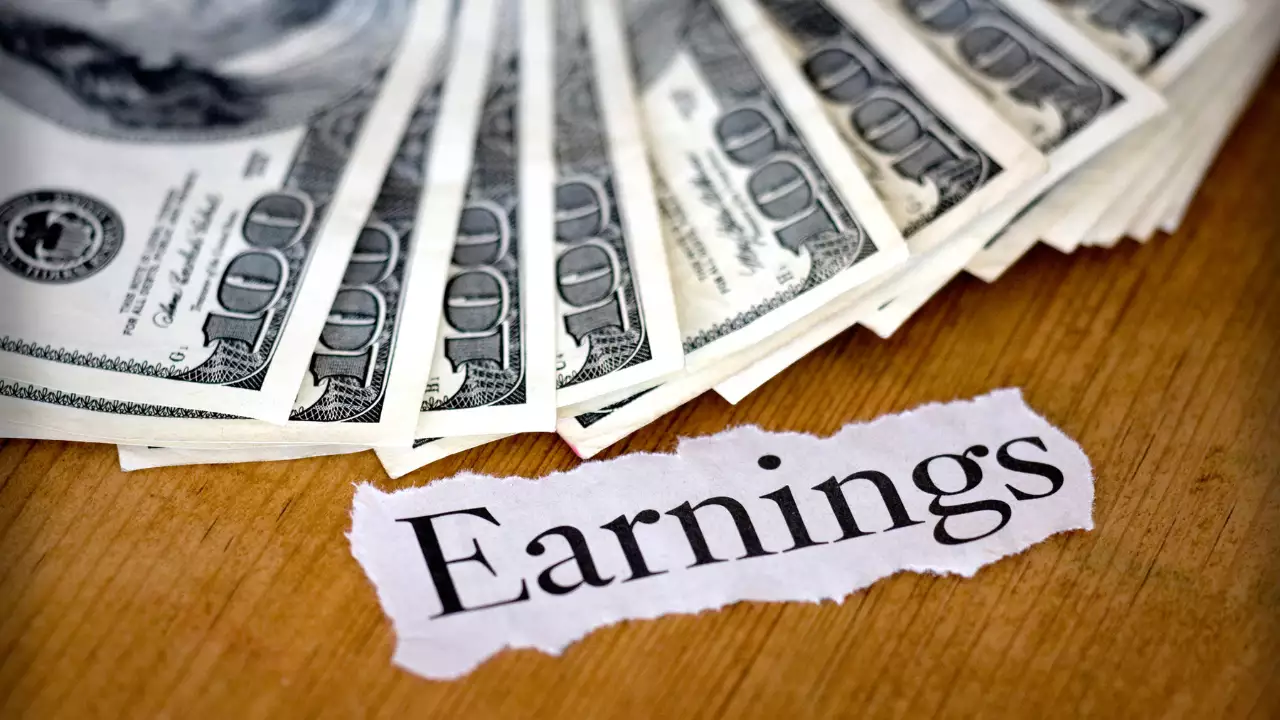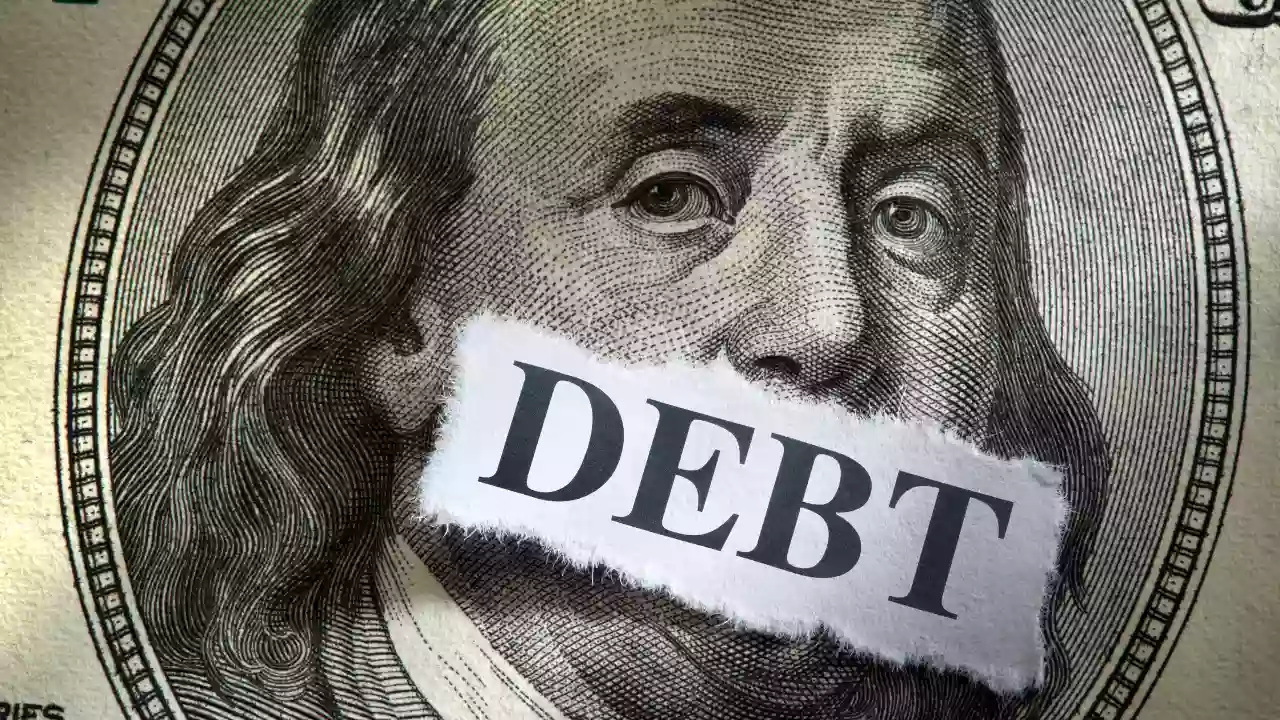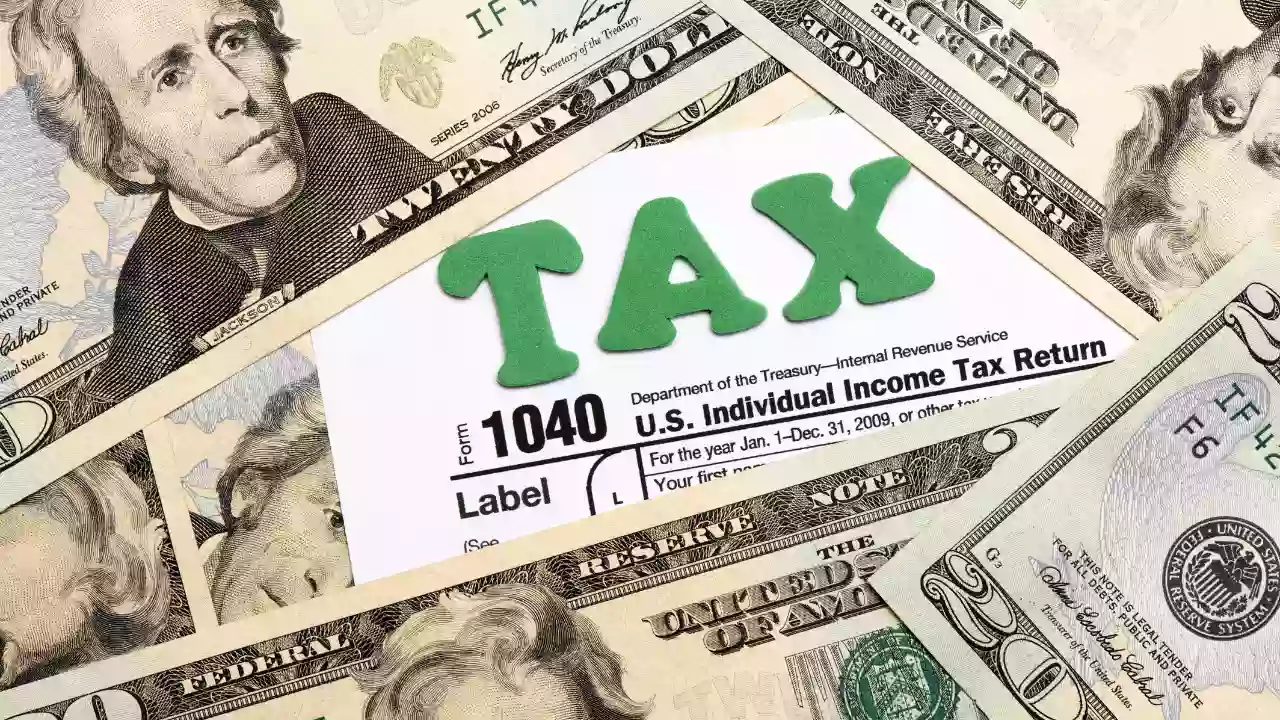Personal finance is about managing your money wisely, covering earning, spending, saving, and investing. It involves creating a financial plan, tackling debt, understanding taxes, and building good credit. Different life stages require different financial strategies. Advanced topics like estate planning and behavioural finance are crucial (Covered in this article), and staying adaptable to economic changes is key. It’s a journey of making informed choices for a secure financial future.
Let’s learn in detail about each of these topics!
What is Personal Finance?

Managing your money is a big part of life. It’s about making sure you have enough for what you need today and in the future. Let’s break down what personal finance really means in simple terms.
What Personal Finance Includes?
Personal finance is all about how you deal with your money. It includes several things:
Earning: This is the money you get from your job or other sources, like a side business.
Spending: This is where you use your money to buy things you need or want. It’s important to spend wisely so you don’t run out of money.
Saving: This means putting some money aside for later, like for an emergency or a big purchase in the future.
Investing: This is when you use your money to try to make more money over time, like buying stocks or saving in a retirement account.
Why It’s Important?
Understanding personal finance is really important because it helps you:
Make Good Decisions: Knowing about personal finance means you can make smarter choices with your money.
Plan for the Future: It helps you save for big things in the future, like buying a house or retiring comfortably.
Handle Emergencies: If you have savings, you’re ready for unexpected things like a car repair or losing your job.
Personal Finance in Everyday Life
Personal finance isn’t just about big things; it’s part of your everyday life. Every time you decide to save money instead of spending it, or when you plan a budget for your monthly expenses, you’re using personal finance skills. It’s about making choices every day that help you stay on track with your money.
Key Components of Personal Finance

Personal finance is like a puzzle with different pieces that fit together to create a clear picture of your financial health. Let’s talk about these pieces in a simple and friendly way.
Earning and Spending: Your Money’s Journey
The first piece of the puzzle is earning. This is all about how you get your money, whether it’s from a job, a small business, or even a hobby that pays. It’s like the fuel that powers your financial engine.
Then comes spending, which is how you use the money you earn. Think of it like a shopping list for your life. It includes everything from buying groceries and paying rent to treating yourself to a movie night. The trick is to spend wisely. It means making sure you have enough for your needs and some of your wants, without going overboard.
Saving and Investing: Growing Your Money
Saving is like planting a seed for your future. It’s setting aside some of your money for later, like for an emergency fund or for big goals down the road. Saving gives you a cushion and peace of mind, knowing you’re prepared for unexpected things life might throw at you.
Investing is how you make your money grow over time. It’s like turning that seed into a thriving plant. When you invest, you’re putting your money into things like stocks, bonds, or real estate, hoping they’ll increase in value over time. But remember, investing comes with risks, so it’s important to learn and start small.
Crafting Your Personal Financial Plan
Creating a personal financial plan is like drawing a map for your money journey. It helps you figure out where you are now, where you want to go, and how to get there. Let’s break down how you can create this plan in easy steps.

Setting Your Financial Goals
The first step in your financial plan is setting goals. Think about what you want in the future. Maybe you dream of buying a house, going on a big vacation, or just feeling more relaxed about money. Your goals can be big or small, short-term (like saving for a new laptop next year) or long-term (like planning for retirement). Write these goals down. They’re like destinations on your money map.
Understanding Where You Are Now
Next, take a good look at where you are right now with your money. This means figuring out how much money you have coming in (your income) and going out (your expenses). List down everything: your salary, any extra income, your rent or mortgage, food costs, bills, and even those little treats you buy yourself. This step is like taking a snapshot of your current financial situation.
Making a Budget
Now, let’s talk about budgeting. A budget is a plan for how you’ll spend your money each month. It helps you control your spending so you can reach your goals. Start by dividing your expenses into ‘needs’ (like rent and food) and ‘wants’ (like eating out or new gadgets). Then, decide how much money you need for each category. Remember to include savings in your budget – it’s important to pay yourself first!
Adjusting Along the Way
Your financial plan isn’t set in stone. Life changes, and your plan might need to change too. Maybe you get a new job with a different salary, or your rent goes up. It’s okay to adjust your budget and goals. Check in on your financial plan regularly, like once every few months, to make sure it still fits your life.
Creating a personal financial plan is a powerful step towards taking control of your money. It’s not about being perfect; it’s about making a plan that works for you and adjusting it as you go. With clear goals, a snapshot of your current situation, and a budget to guide you, you’re well on your way to a healthier financial future.
Saving and Investment Strategies

When it comes to personal finance, saving and investing are like the tools you use to build a secure future. They’re about putting your money to work so you can achieve your dreams and handle whatever comes your way. Let’s explore how you can make the most of these tools.
Building Your Savings
Saving money is like storing water in a reservoir; you’re setting it aside for a time when you’ll really need it. The first step is to create an emergency fund. This is money you save for unexpected expenses, like if your car breaks down or you have a sudden medical bill. A good rule of thumb is to save enough to cover three to six months of your living expenses. You can start small, maybe saving a little from each paycheck, and gradually increase it over time.
Another part of saving is for specific goals. Maybe you want to save for a down payment on a house, a special vacation, or your child’s education. Having a clear goal can motivate you to stick to your saving plan. Open a separate savings account for each goal, so you can see your progress and stay focused.
Understanding Investing
Investing is how you can grow your savings over time. It’s like planting seeds in a garden; with the right care and time, they can grow into something much bigger. You can invest in different things, like stocks, bonds, or real estate. Each type of investment has its own level of risk and potential return, so it’s important to choose ones that match your goals and comfort with risk.
Start by learning about different types of investments. There’s no need to rush; take your time to understand how each one works. You might also consider talking to a financial advisor who can help you make informed decisions.
Balancing Risk and Reward
Investing always comes with some level of risk, but there are ways to manage it. One key strategy is diversification, which means spreading your investments across different types. This can help protect your money because if one investment doesn’t do well, the others might balance it out.
Remember, investing isn’t about getting rich quick. It’s a long-term strategy for growing your wealth. Be patient, keep learning, and adjust your investments as your needs and the market change.
Saving and investing are essential parts of personal finance. They help you build a financial cushion for emergencies and grow your wealth over time. By saving regularly and investing wisely, you’re taking important steps toward a more secure financial future.
Debt Management

Dealing with debt is a crucial part of managing your finances. It’s like navigating through a maze; the right strategies can lead you out to a place of financial freedom. Let’s explore how you can handle and overcome debt in a simple and effective way.
Understanding Different Types of Debt
First, it’s important to know that not all debt is the same. There’s ‘good debt’ and ‘bad debt.’ Good debt can be something like a mortgage on a home that increases in value over time. Bad debt, on the other hand, might be high-interest credit card debt that doesn’t bring any return and can quickly become overwhelming.
Start by listing all the debts you have, like credit card balances, student loans, car loans, or any other money you owe. Note down how much you owe, the interest rate on each debt, and the monthly payment. This will give you a clear picture of where you stand.
Strategies for Paying Off Debt
Once you know what you’re dealing with, you can start planning how to pay it off. There are different strategies, like the ‘snowball method,’ where you pay off the smallest debts first to get quick wins. Or the ‘avalanche method,’ where you tackle debts with the highest interest rates first to save money on interest over time.
Consider consolidating your debts. This means combining multiple debts into one, ideally with a lower interest rate. It can make managing your debts easier and more affordable.
Avoiding Common Debt Traps
Staying out of debt also means being aware of common traps. Avoid taking on debt for things that don’t offer long-term value. Be cautious with credit cards; it’s easy to spend more than you can afford because you’re not paying with physical cash.
Remember, getting out of debt might take time, and that’s okay. The key is to stay consistent with your payments and avoid taking on new debts. As you pay off each debt, you’ll start to feel more in control of your finances, moving closer to a debt-free life.
Dealing with debt is a journey that requires patience, discipline, and a solid plan. By understanding your debts, choosing the right strategies to pay them off, and avoiding common traps, you can navigate your way to financial stability and peace of mind.
Understanding Taxes

Taxes are a part of everyone’s financial life, like a puzzle piece that fits into your overall money picture. Understanding taxes can seem complicated, but it’s really about knowing how they affect your income and savings. Let’s break it down into simpler terms.
Understanding Income Tax
Income tax is the money you pay to the government from what you earn, whether it’s from a job, a side business, or investments. The amount of tax you pay depends on how much you earn. Think of it like a ladder; the more you climb up the income steps, the more tax you might have to pay.
Every year, you’ll need to file a tax return. This is where you tell the government how much you’ve earned and calculate how much tax you owe. If you’ve paid more tax throughout the year than you needed to, you might get a refund. If you’ve paid less, you might owe more.
Tax-Advantaged Accounts and Investments
There are special types of savings and investment accounts that can help you save on taxes. For example, retirement accounts like 401(k)s or IRAs can offer tax benefits. Money you put in these accounts might be tax-deductible, and the growth of your investments in these accounts can be tax-deferred or even tax-free.
Another example is Health Savings Accounts (HSAs), which offer tax advantages for medical expenses. The key is to understand these options and use them to your advantage.
Planning for Taxes
Tax planning is about understanding how different financial decisions can affect your taxes. It involves choosing the right strategies to minimize the amount of tax you pay. This could mean deciding when to sell investments, how to save for retirement, or even how to plan your charitable donations.
Remember, taxes are a normal part of financial life. By understanding how income tax works, using tax-advantaged accounts, and planning your finances with taxes in mind, you can make smarter decisions that help you keep more of your hard-earned money.
Building and Maintaining Good Credit

Good credit is like a key that opens many doors in your financial life. It can help you get loans, find housing, and sometimes even land a job. Let’s explore how you can build and maintain a good credit score in simple terms.
What is a Credit Score?
Your credit score is a number that tells lenders how reliable you are when it comes to paying back money. It’s like a grade for your financial behaviour. This score is based on your credit history, which includes things like how many loans or credit cards you have, how much debt you owe, and whether you pay your bills on time.
How to Build and Improve Credit
Building good credit starts with using credit responsibly. If you have credit cards, try to pay off the full balance each month, or at least make the minimum payments on time. If you’re just starting out, you might get a secured credit card, where you put down a deposit as a safety net.
Another tip is to keep an eye on your credit utilisation ratio. This is the amount of credit you’re using compared to the total credit available to you. A lower ratio is better for your credit score. Try to keep it under 30%.
Understanding Credit Reports
Your credit report is a detailed record of your credit history. It’s important to check your credit report regularly to make sure everything is accurate. Sometimes, mistakes happen, like payments marked as late when you paid on time, or accounts you don’t recognize. If you find errors, you can dispute them with the credit bureau.
Remember, building good credit doesn’t happen overnight. It’s about making smart choices and being consistent over time. By understanding what a credit score is, using credit wisely, and keeping an eye on your credit report, you can build and maintain a good credit score. This will make it easier for you to achieve your financial goals, whether it’s buying a home, getting a loan, or just having financial peace of mind.
Personal Finance for Different Life Stages
Managing your money is a journey that changes as you move through different stages of life. From your first paycheck to planning for retirement, each phase has its unique financial needs and goals. Let’s look at how personal finance evolves over time.

Starting Out: Young Adulthood
In your 20s and early 30s, you might be starting your first job, paying off student loans, or saving for big goals like buying a car or travelling. This is a great time to start building good financial habits. Creating a budget can help you manage your income and expenses, and starting an emergency fund can prepare you for unexpected costs. It’s also the perfect time to start saving for retirement – even small amounts can grow significantly over time thanks to compound interest.
Mid-Life: Financial Growth and Responsibilities
As you move into your 40s and 50s, your financial life often becomes more complex. You might be earning more, but you also might have bigger expenses, like a mortgage or family costs. This is a crucial time to review and adjust your financial plans. You might focus on paying off debts, saving for your children’s education, or investing more in your retirement fund. It’s also important to have adequate insurance coverage to protect your family and assets.
Nearing Retirement: Preparing for the Golden Years
In your 60s and beyond, retirement planning becomes a priority. This stage is about ensuring you have enough savings to enjoy your retirement years comfortably. It’s a good time to look at your retirement accounts, consider any pensions or social security benefits you might have, and plan your budget for a post-work life. You might also think about estate planning, like writing a will or setting up trusts, to take care of your loved ones after you’re gone.
Each stage of life brings different financial opportunities and challenges. By understanding and planning for these changes, you can make sure your personal finance strategy supports your goals and needs at every step of the way.
Advanced Personal Finance Topics

As you get more comfortable with the basics of managing your money, you might be ready to dive into some more advanced areas of personal finance. These topics can help you make the most of your money and secure your financial future.
Estate Planning: Preparing for the Future
Estate planning might sound like something only rich people do, but it’s actually important for everyone. It’s about making decisions now about what will happen to your money and property after you’re gone. This can include writing a will, which is a document that says who you want to inherit your things. It can also involve setting up trusts, which are ways to manage your money for specific purposes, like helping a child with special needs or donating to a charity.
Estate planning also includes making sure your loved ones know about your wishes. This can make things much easier for them during a difficult time.
Financial Advisors: Getting Expert Help
Sometimes, managing your money can get complicated, and you might want some expert advice. A financial advisor is someone who can help you make smart money decisions. They can give you advice on things like investing, saving for retirement, and tax planning.
When choosing a financial advisor, it’s important to find someone you trust and who understands your financial goals. You can ask friends or family for recommendations, or look for advisors with good reviews and the right qualifications.
The Psychology of Money: Behavioural Finance
Behavioural finance is about understanding how your emotions and behaviour affect your financial decisions. Sometimes, we make money choices based on feelings, like fear or excitement, rather than what’s actually best for our finances.
Learning about behavioural finance can help you recognize these patterns in yourself. This can help you avoid common money mistakes, like buying stocks just because everyone else is, or spending too much when you’re feeling down.
Staying Informed and Adapting to Changes

In the world of personal finance, staying informed and adaptable is key. Just like the weather changes, so does the financial landscape. Keeping up with these changes and adjusting your plans accordingly can help you stay on track with your financial goals.
Keeping Up with Economic Trends
The economy is always moving, like a river that never stands still. Prices go up and down, new job opportunities come up, and interest rates change. All these things can affect your money. By staying informed about economic trends, you can make smarter decisions. For example, if interest rates are low, it might be a good time to refinance your mortgage. Or, if there’s a new tax law, you might need to adjust your budget.
You don’t have to be an expert, but following financial news, reading articles, or even listening to podcasts can help you stay informed. This way, you can make decisions based on what’s happening in the world, not just in your own life.
Adapting to Life Changes
Life is full of surprises. You might get a new job, have a baby, or decide to move to a new city. Each of these changes can affect your finances. When big life events happen, it’s a good idea to take a look at your financial plan and see if it still fits your new situation.
For example, if you start earning more, you might want to save more for retirement. Or, if you have a child, you might need to start saving for their education. Being flexible and ready to adjust your financial plan can help you handle whatever life throws your way.
Continuous Learning in Personal Finance
The world of money can be complex, but learning a little bit at a time can make it easier. There are always new things to learn, whether it’s about investing, saving, or managing debt. You can take online courses, read books, or even join a local financial workshop.
Staying informed, adapting to changes, and continuously learning are important parts of managing your money well. By doing these things, you can make sure your financial plan stays strong, no matter what life or the economy brings your way.
So, let’s summarize each section in simple points:
Understanding Personal Finance
- Personal finance is about managing your money.
- It includes earning, spending, saving, and planning for the future.
- It’s important for making smart money choices and planning for life events.
Key Components of Personal Finance
- Earning: How you make money
- Spending: How you use your money.
- Saving: Setting money aside for the future.
- Investing: Making your money grow.
- Protecting: Safeguarding your finances with insurance.
Creating a Personal Financial Plan
- Set financial goals for the future.
- Understand your current financial situation.
- Make a budget to manage spending and savings.
- Adjust your plan as life changes.
Saving and Investment Strategies
- Build an emergency fund for unexpected expenses.
- Save for specific goals like a house or vacation.
- Learn about different investment options.
- Balance risk and reward in your investments.
Debt Management
- Understand different types of debt.
- Use strategies like the snowball or avalanche method to pay off debt.
- Avoid common debt traps and manage credit cards wisely.
Understanding Taxes
- Learn how income tax affects your earnings.
- Use tax-advantaged accounts for savings and investments.
- Plan your finances to minimize tax liabilities.
Building and Maintaining Good Credit
- Understand what a credit score is and why it’s important.
- Build credit by using credit cards responsibly.
- Regularly check your credit report for accuracy.
Personal Finance for Different Life Stages
- Manage money differently in young adulthood, mid-life, and near retirement.
- Adjust financial plans according to life changes.
- Focus on retirement planning in later years.
Advanced Personal Finance Topics
- Estate planning for future financial security.
- Consider consulting with financial advisors for expert advice.
- Understand how emotions and behaviour affect financial decisions.
- Staying Financially Agile in Changing Times
Stay informed about economic trends
- Adapt your financial plan to life changes.
- Continuously learn about personal finance to improve your financial skills.
- Each of these points offers a step towards better understanding and managing your personal finances, helping you make informed decisions and plan for a secure financial future.